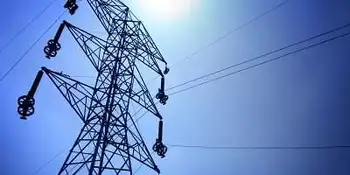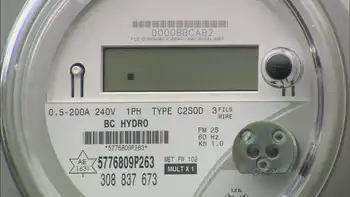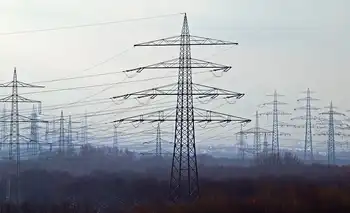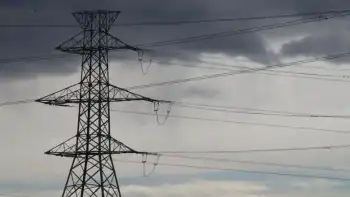Duke Energy Florida to build its largest battery storage projects yet

CSA Z463 Electrical Maintenance
Our customized live online or in‑person group training can be delivered to your staff at your location.

- Live Online
- 6 hours Instructor-led
- Group Training Available
Duke Energy Florida battery storage will add 22 MW across Trenton, Cape San Blas and Jennings, improving grid reliability, outage resilience, enabling peak shaving and deferring distribution upgrades to increase efficiency and customer value.
Key Points
Three lithium battery projects totaling 22 MW to improve Florida grid reliability, outage resilience and efficiency.
✅ 22 MW across Trenton, Cape San Blas and Jennings sites
✅ Enhances outage resilience and grid reliability
✅ Defers costly distribution upgrades and improves efficiency
Duke Energy Florida (DEF) has announced three battery energy storage projects, totaling 22 megawatts, that will improve overall reliability and support critical services during power outages.
Duke Energy, the nation's largest electric utility, unveils its new logo. (PRNewsFoto/Duke Energy) (PRNewsfoto/Duke Energy)
Collectively, the storage facilities will enhance grid operations, increase efficiencies and improve overall reliability for surrounding communities, with virtual power plant programs offering a model for coordinating distributed resources.
They will also provide important backup generation during power outages, a service that is becoming increasingly important with the number and intensity of storms that have recently impacted the state.
As the grid manager and operator, DEF can maximize the versatility of battery energy storage systems (BESS) to include multiple customer and electric system benefits such as balancing energy demand, managing intermittent resources, increasing energy security and deferring traditional power grid upgrades.
These benefits help reduce costs for customers and increase operational efficiencies.
The 11-megawatt (MW) Trenton lithium-based battery facility will be located 30 miles west of Gainesville in Gilchrist County. The energy storage project will continue to improve power reliability using newer technologies.
The 5.5-MW Cape San Blas lithium-based battery facility will be located approximately 40 miles southeast of Panama City in Gulf County. The project will provide additional power capacity to meet our customers' rising energy demand in the area. This project is an economical alternative to replacing distribution equipment necessary to accommodate local load growth.
The 5.5-MW Jennings lithium-based battery facility will be located 1.5 miles south of the Florida-Georgia border in Hamilton County. The project will continue to improve power reliability through energy storage as an alternative solution to installing new and more costly distribution equipment.
Currently the company plans to complete all three projects by the end of 2020.
"These battery projects provide electric system benefits that will help improve local reliability for our customers and provide significant energy services to the power grid," said Catherine Stempien, Duke Energy Florida state president. "Duke Energy Florida will continue to identify opportunities in battery storage technology which will deliver efficiency improvements to our customers."
Additional renewables projects
As part of DEF's commitment to renewables, the company is investing an estimated $1 billion to construct or acquire a total of 700 MW of cost-effective solar power facilities and 50 MW of battery storage through 2022.
Duke Energy is leading the industry deployment of battery technology, with SDG&E's Emerald Storage project underscoring broader adoption across the sector today. Last fall, the company and University of South Florida St. Petersburg unveiled a Tesla battery storage system that is connected to a 100-kilowatt (kW) solar array – the first of its kind in Florida.
This solar-battery microgrid system manages the energy captured by the solar array, situated on top of the university's parking garage, and similar low-income housing microgrid financing efforts are expanding access. The solar array was constructed three years ago through a $1 million grant from Duke Energy. The microgrid provides a backup power source during a power outage for the parking garage elevator, lights and electric vehicle charging stations. Click here to learn more.
In addition to expanding its battery storage technology and solar investments, DEF is investing in transportation electrification to support the growing U.S. adoption of electric vehicles (EV), including EV charging infrastructure, 530 EV charging stations and a modernized power grid to deliver the diverse and reliable energy solutions customers want and need.











